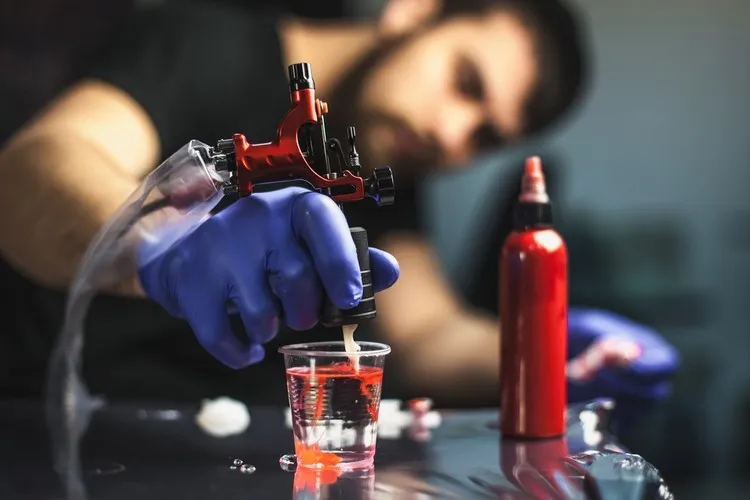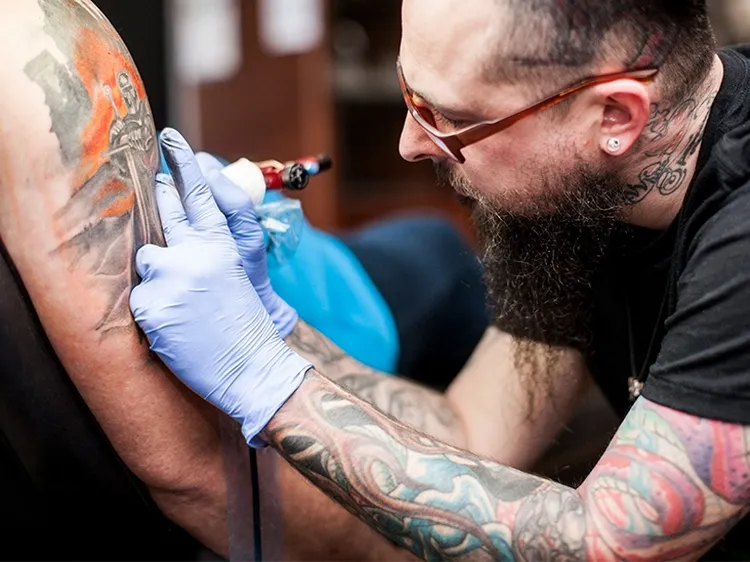Nowadays, tattoos are popular more than ever. Now this is no longer considered a sign of belonging to any subculture neither it is not condemned by society. On the contrary, tattoos intrigue and attract the attention of others. It has become fashionable to apply various images to your body but do you realize what tattoos do to the skin? It is very important to understand the risks and in today’s article we shall discuss the potential problems and reactions.
How Tattoos Work?
Probably, there are few people who, at least once in their lives, did not think about the opportunity to take an example from friends, colleagues or celebrities and make some kind of tattoo. Some people do it while others are frightened by the prospect of having something permanent on their skin.
A tattoo is inserting paint or pigments into the subcutaneous tissue to a depth of 1-2 mm using a special needle. Immediately after application, the tattoo is an open wound that requires special care and will take from 2 weeks to 2 months to heal. Most tattoo studios issue specific instructions for caring for a tattoo during the healing period. In modern times tattoos are something common for all ages and both sexes. But, is this fashion statement really that harmless? What tattoos do to the skin and are they harmful to our health?
We have to say a few words about tattoo ink and pigment ingredients. Most tattoo inks contain metal salts, iron oxides, or plastics which allow the ink to remain stable for many years. For example, black ink contains iron oxide (which is commonly known as rust), carbon etc., while red contains Cinnabar and Napthol-AS pigment. People are not aware of the fact that Cinnabar is a toxic substance and all shades of red ink and tattoo ink in general, carry risks of allergic or other reactions.
What Tattoos Do To the Skin Cells?
Are tattoos safe for your skin? There are a significant number of people who are concerned about the toxic substances in tattoo ink. Let’s see what happens to the skin during the process of tattooing. As you know, the skin has many layers. The main ones are:
- Epidermis – tops layer of skin
- Dermis – this is the layer beneath the epidermis
- Subcutaneous – this level is responsible for controlling body temperature and performs other functions.
A tattoo is applied to the skin with a machine that moves a needle which penetrates into your skin from 50 to 3000 times a minute. The ink reaches the dermis and remains there due to the fact that this layer does not shade cells. The body reacts to the wound and pigments and the immune system is activated so that it repairs the damage to the skin and reduce the risk of inflammation.
What Are the Potential Skin Infections from a Tattoo?
One of the most dangerous tattoo complications is getting an infection if the needles are not clean. According to statistics, the percentage of people infected with the hepatitis C virus among tattooed people is much higher than among those who do not have a tattoo. Hepatitis B, HIV, various bacterial and fungal infections are possible infections.
When a tattoo gets infected, a sharp reddening of the skin is observed. The pain at the injection spot intensifies. The skin is itchy and rashes or blisters may appear and you may have high temperature and fever.
Can a Tattoo Cause an Allergic Reaction?
Yes, a tattoo can cause an allergic skin reaction triggered by the substances in the ink – lead, zinc, iron, cobalt, soot, manganese, nickel or mercury. The reaction can be immediately after the tattoo is applied or after a few weeks. In most cases, the skin reaction is temporary, but it can lead to a permanent deterioration in the quality of the tattoo. Be sure to consult about the quality of the ink and any allergens in it before tattooing.
What Tattoos Do To the Skin – Allergy to the Sun
An allergic reaction can also develop as a result of uncontrolled exposure of the tattooed area to direct sunlight. It is advisable to protect your tattoos from sunlight, especially at first. Allergy to the sun is usually expressed in a rash, redness, swelling, blistering.
Skin Disease Risk
Tattoos carry a risk of developing skin diseases like psoriasis, eczema, even skin cancer. If you notice a scar or signs of disease at the tattoo spot, you should contact a dermatologist immediately.
Permanent Damage to the Skin When Removing the Tattoo
Removing a tattoo is not a simple procedure. This should be kept in mind before applying one. The laser, which destroys and eliminates pigments in the ink when removing a tattoo, can cause serious damage, and their full set is not yet fully understood. An additional inconvenience is the pain of the procedure, which is comparable to that of tattooing.








